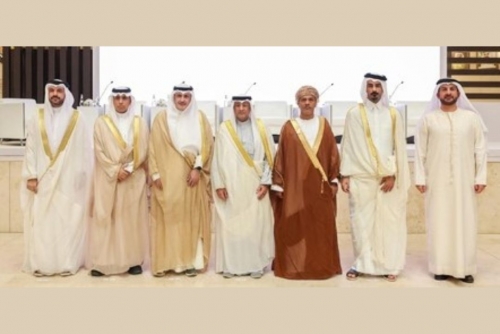Gulf Shield
TDT | Manama
Email : editor@newsofbahrain.com
Strategy spans rehab and policing
The Gulf Cooperation Council has unveiled a sweeping anti-drug strategy for 2025 to 2028 that combines tougher enforcement with social reintegration programmes, marking one of the most comprehensive Gulf-wide actions against drug trafficking and addiction to date.
GCC Secretary-General Jassim Mohammed Al-Budaiwi announced the plan at a regional celebration for Gulf Anti-Drug Week and the International Day Against Drug Abuse and Illicit Trafficking, held at the General Secretariat headquarters in Riyadh yesterday.
High-level officials from interior ministries and anti-narcotics agencies across member states were present.
Security and society combined
Al-Budaiwi said the new strategy reflects unified action based on the directives of Gulf leaders, aiming to reduce both the supply and demand for drugs through an integrated framework that addresses prevention, security, and treatment.
Key pillars of the 2025–2028 strategy include cutting supply chains, promoting alternative development, enhancing legislation, combating money laundering linked to drug trafficking, and building a regional monitoring system.
It also emphasises training, capacity building, and coordinated awareness campaigns.
Rehab and reintegration
Significantly, the plan also highlights the importance of social integration for recovering addicts, calling on families and communities to serve as the first line of defence.
Al-Budaiwi urged a cultural shift that supports recovering addicts in regaining self-confidence and participating actively in society.
Hospitals, treatment centres, and rehabilitation programmes in GCC countries will be tasked with offering support through education, skills training, and job placement, while combating stigma that may hinder longterm recovery.
Call for regional unity
The Secretary- General stressed that drug control is a shared responsibility and praised ongoing partnerships with ministries of health, justice, education, and social affairs, in addition to customs agencies, coast guards, and national committees.
He reaffirmed the GCC’s commitment to deepening cooperation with the United Nations Office on Drugs and Crime and other international bodies to ensure cross-border coordination and lasting impact.
The strategy is expected to serve as a unifying roadmap across the region in confronting what Al-Budaiwi called a “dangerous scourge” threatening Gulf societies and future generations.
Related Posts

